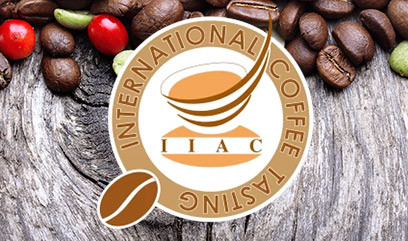"What is of no use to the swarm is of no use to the individual bee".
Marcus Aurelius, the philosopher king, already knew that it takes more than one person to form and hold a great empire. Even the individual with the best qualities cannot do without the collective. The International Institute of Coffee Tasters (IIAC) has made this its mantra, so much so that it still relies solely on the contributions of its members. Since its founding in 1993, the association has adopted a non-profit philosophy focused solely on promoting the image of coffee. Espresso has been a symbol of "Made in Italy" for generations and an indispensable point of reference for all those who visit the "Belpaese".
Chemical analysis and human sensory perception, all IIAC courses.
Twenty-eight years is a short time when compared to the long history of mankind, even if narrowed down to the moment of the discovery of coffee. Nevertheless, in this time the Istituto Internazionale Assaggiatori Caffè (International Institute of Coffee Tasters) has been able to establish itself as an emerging community capable of training professionals with high quality and expertise in the field. Thanks to hundreds of courses in various disciplines, ranging from the chemical analysis of coffee to the sensory reactions of the human body after tasting different blends, operators and enthusiasts from all over the world have been able to train their palates for a more detailed and consequently knowledgeable tasting.
The most important and world-renowned of these events is undoubtedly the International Coffee Tasting. For more than 15 years, the previous twelve editions of the course have tasted over 2,100 different coffees from all over the world. At the International Coffee Tasting, different varieties of coffee beans, extracted using different techniques, compete for the coveted gold medals. The evaluations are made by a jury composed of professionals trained by the International Institute of Coffee Tasters. According to strict sensory standards, precisely defined rules and rigorous scientific references, the evaluation takes place.
Whether moka or filter coffee, there is a place for everyone at the IIAC
Every coffee that enters the competition must meet certain criteria and parameters to receive the gold medal awarded by the IIAC. The categories available are many and varied. As emphasized and guaranteed on the official website, the IIAC tests:
- single variety coffees or blends for filter brewing, Chemex, V60, Neapolitan espresso makers;
- single-varietal coffees or blends for the preparation of moka;
- single-varietal coffees or blends of beans for preparation with fully automatic machines;
- single-origin coffees or blends packaged in a single dose;
- Blends of beans for the preparation of espresso;
- single variety beans for the preparation of espresso;
- G. Ready To Drink (RTD) products.
The International Institute of Coffee Tasters has also thought of gastronomic skills and offers training courses to qualify operators who want to offer certified Italian espresso in their bar. Thanks to the proven partnership between the IIAC and the know-how of the "Centro Studi Assaggiatori", the espresso preferences of the general public have been defined and compared with the opinion of the experts. According to this, a true certified Italian espresso is a coffee with a volume of about 25 milliliters and with an even, hazelnut-brown crema enlivened by brownish reflections (mackerel). Its aroma should be intense and contain complex scents of flowers, fruits, chocolate and roasted aromas. When tasted, it must have the right degree of creaminess and body in the mouth, slightly bitter, but in no way exaggerated.
Qualities that are certainly not easy to achieve without the utmost care and dedication at all stages of processing, both during harvesting in the plantations and during the production steps in the roastery. Because, as Marcus Aurelius said, the individual bee benefits only what benefits the whole swarm.

